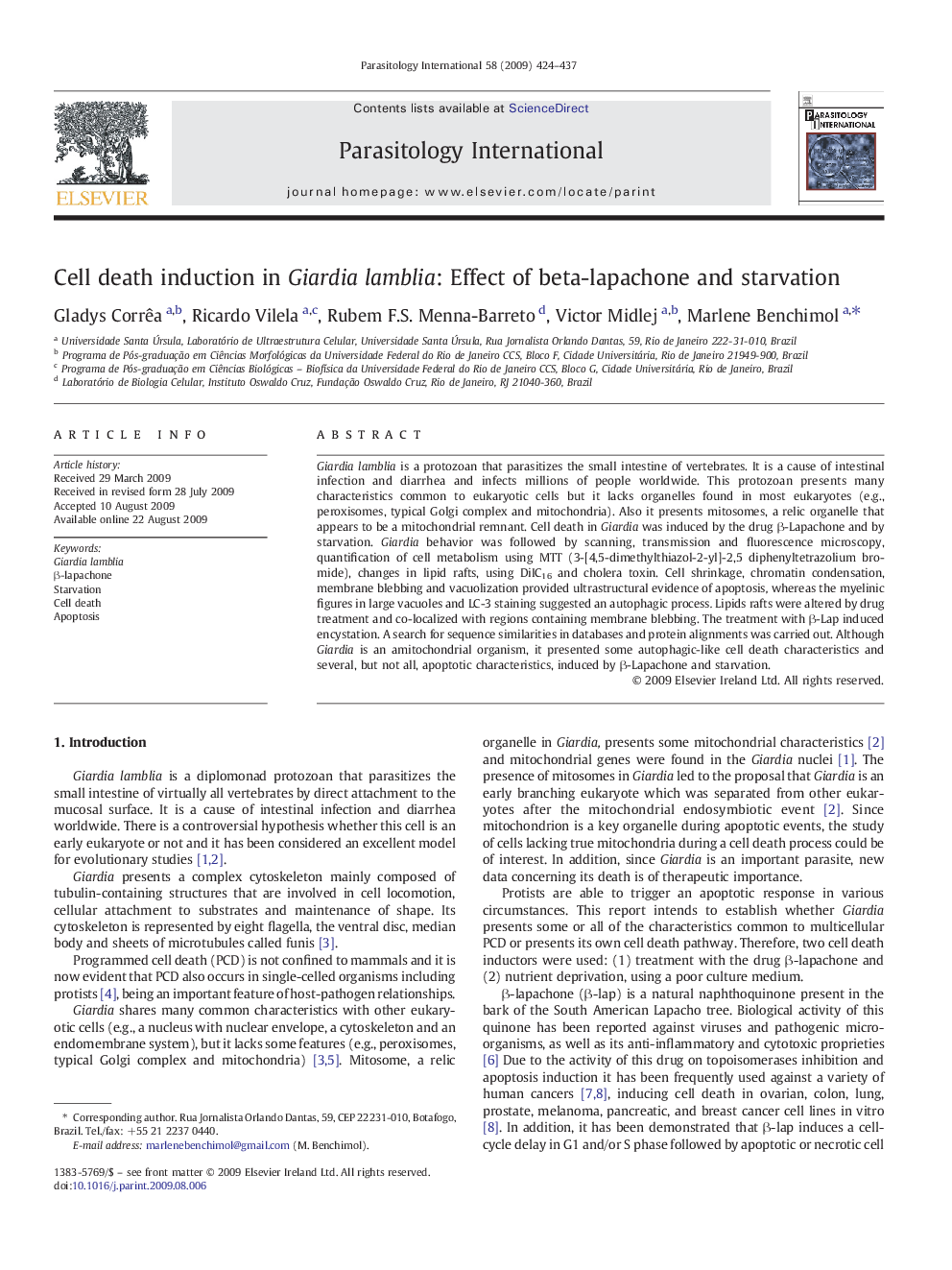| کد مقاله | کد نشریه | سال انتشار | مقاله انگلیسی | نسخه تمام متن |
|---|---|---|---|---|
| 6137195 | 1225500 | 2009 | 14 صفحه PDF | دانلود رایگان |

Giardia lamblia is a protozoan that parasitizes the small intestine of vertebrates. It is a cause of intestinal infection and diarrhea and infects millions of people worldwide. This protozoan presents many characteristics common to eukaryotic cells but it lacks organelles found in most eukaryotes (e.g., peroxisomes, typical Golgi complex and mitochondria). Also it presents mitosomes, a relic organelle that appears to be a mitochondrial remnant. Cell death in Giardia was induced by the drug β-Lapachone and by starvation. Giardia behavior was followed by scanning, transmission and fluorescence microscopy, quantification of cell metabolism using MTT (3-[4,5-dimethylthiazol-2-yl]-2,5 diphenyltetrazolium bromide), changes in lipid rafts, using DiIC16 and cholera toxin. Cell shrinkage, chromatin condensation, membrane blebbing and vacuolization provided ultrastructural evidence of apoptosis, whereas the myelinic figures in large vacuoles and LC-3 staining suggested an autophagic process. Lipids rafts were altered by drug treatment and co-localized with regions containing membrane blebbing. The treatment with β-Lap induced encystation. A search for sequence similarities in databases and protein alignments was carried out. Although Giardia is an amitochondrial organism, it presented some autophagic-like cell death characteristics and several, but not all, apoptotic characteristics, induced by β-Lapachone and starvation.
Journal: Parasitology International - Volume 58, Issue 4, December 2009, Pages 424-437